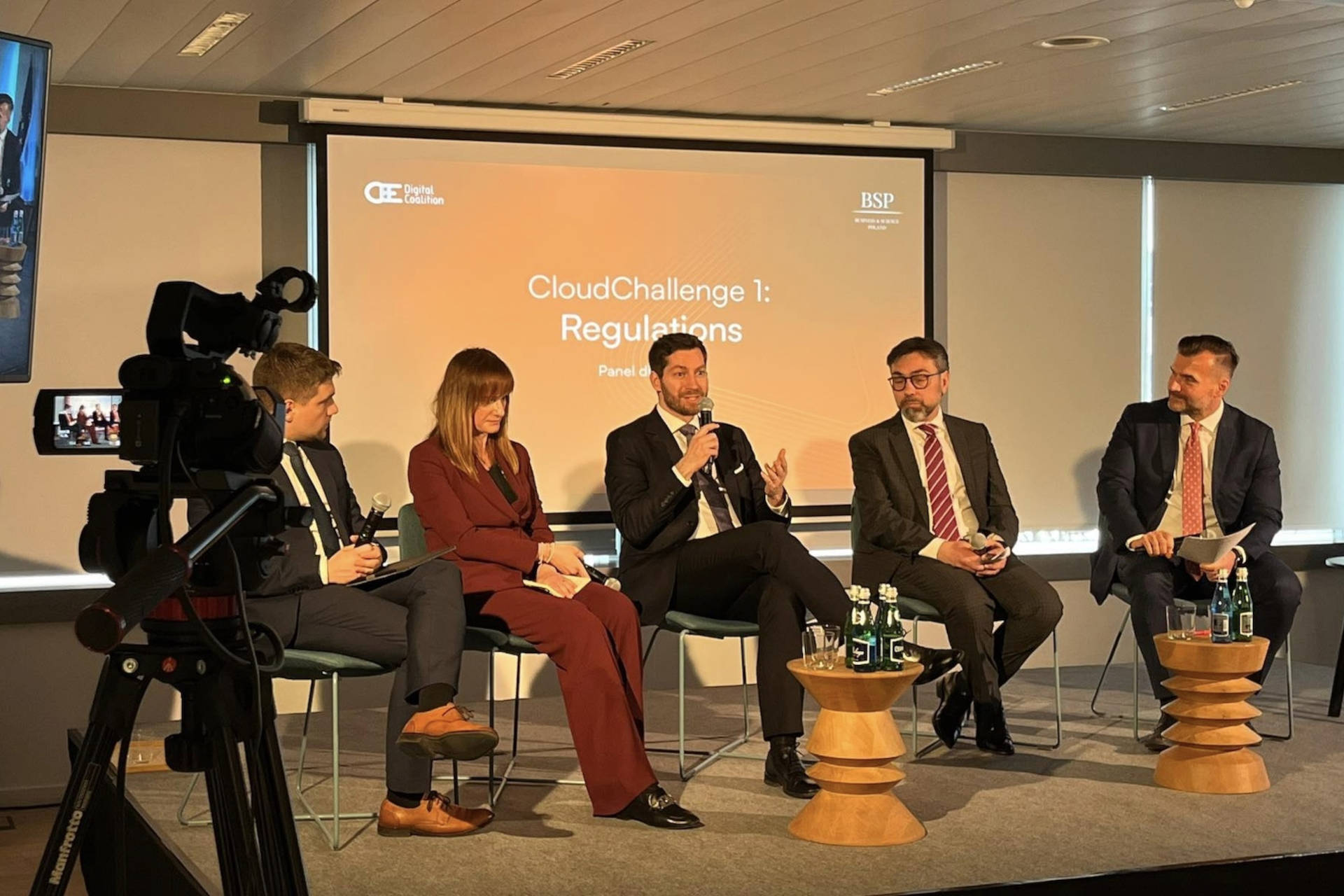#CloudChallenger: joint regulations and cooperation between the private and public sectors are necessary for the integration of the EU digital market

Europe loses out in global rankings on number of software companies. Without regulations consolidating the EU digital market, member states will continue to fall behind. Unlike countries such as the US or China, there is still a lot of economic fragmentation in the EU, which is one of the main factors inhibiting the development of start-ups," argued former Slovenian Minister of Digitalisation Mark Andrijanić, at the #CloudChallenger conference organised by Digital Poland Association in Brussels.
The #CloudChallanger conference took place on 23 March. The event, organised at the headquarters of Business & Science Poland, was attended by representatives of the European Commission, authorities of Central and Eastern Europe (CEE) countries, digital industry experts, as well as by the cloud and cyber security specialists from public agencies and private companies. Experts shared a regional perspective on the future of the cloud in their countries and the entire EU during the conference.
Regulations must be consistent and remain flexible
Experts discussed the necessity of regulating the EU's digital market. The panellists pointed to current problems arising from a lack of consistency in the laws of member states. - One of the biggest challenges is the harmonisation of regulations and the exclusion of loopholes, said cyber security counsellor at the Permanent Representation of the Republic of Poland to the EU in Brussels, Katarzyna Prusak-Gorniak.
Former Slovenian Minister of Digitalisation, Mark Boris Andrijanić, focused on the non-competitiveness of the European digital sector, which he believes is largely due to, among other things, the monopolisation of the market, as well as the lack of adequate regulation. - The European economy is not sufficiently integrated. As a result, new entities within the SME sector are not able to scale-up as fast as start-ups in large countries like the US, China or India do, he said.
The EU's Artificial Intelligence Data Act was discussed as well. The document is under development and aims to regulate the applications of artificial intelligence in the EU, with a particular focus on mitigating the risks associated with AI development. According to ECSO (European Cyber Security Organisation) representative Roberto Cascella, the document "will become a global benchmark", and which will initiate the implementation of similar legislation outside Europe. However, as he stressed, "the key is to remain flexible, so that in three or five years' time - as the technology develops - the regulations can be re-evaluated".
- At the moment, we do not see the full potential that AI brings, he pointed out, adding that when developing legislation, "the broader context needs to be maintained" rather than focusing solely on the AI Act. - Representatives of SMEs or digital solution providers need to be provided with specific guidance on how to comply with various regulations, he explained.
The change of the key strategic issues in the EU
The panellists pointed to the redefinition of the European Union's strategic priorities in the context of the Russian and Chinese threat, which involves the increased importance of cybersecurity. According to Katarzyna Prusak-Gorniak, unified access to technological resources is particularly important. - We need to stick together. 27 member states are a lot. On the one hand, it is a challenge, but on the other hand, it brings many benefits - we can share our best practices and knowledge. We need to build and strengthen the digital single market together," she pointed out. - At last Europe agrees on the key strategic challenges - Russia and China, Andrijanic added. In his view, the transatlantic relationship is in a "much better place" than it was a year ago and before. He also noted that the Americans are "serious" about the technology dialogue.
ECSO's Roberto Cascella further stressed that cooperation between the private and public sectors is now very important and needs to be taken to a new, higher level. - The agenda must be aligned, he concluded.